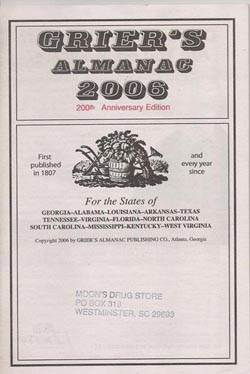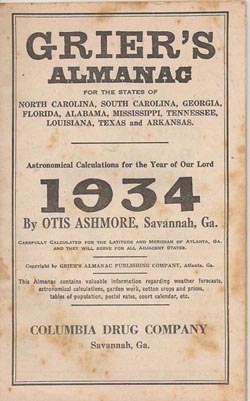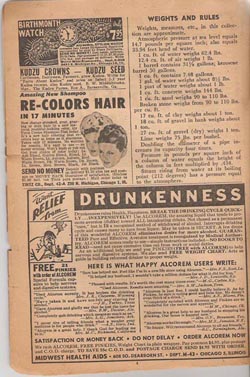















Southern Exposure
Mississippi in Tuscany
Italian Filmmakers Adapt Tennessee Williams Play to Short Film
Italian Filmmakers Adapt Tennessee Williams Play to Short Film
Europe was no stranger to playwright Tennessee Williams (1911-1983), and the stage productions and film adaptations of his plays have been no stranger to Europe . . . or the rest of the world, for that matter. While it comes as no surprise that Williams' work continues to attract new generations of theatre devotees decades after his death, it is particularly intriguing that many of his plays, though often southern Gothic in style, enjoy broad international appeal.
Questa Proprietà è Condannata
Though Williams' Pulitzer Prize-winning plays, A Streetcar Named Desire (1947) and Cat on a Hot Tin Roof (1955), have made lasting impressions in New York, London and elsewhere, a number of his lesser-known plays, many of which embody the essence of a decadent American South, have continued to generate interest on both sides of the Atlantic. One such play is This Property Is Condemned (1946). In Tennessee Williams and the South, Holditch and Leavitt point out that this "is the play [Williams] wrote his first night in New York as he battled homesickness in the big city, remembering and yearning for his youth in the Delta." Some sixty-plus years following the introduction of Williams' original one-act play and more than forty years after the London premiere of its film adaptation, which was directed by Sydney Pollack and starred Natalie Wood, Robert Redford, Kate Reid, Charles Bronson and Mary Badham, filmmakers in Italy have revisited This Property Is Condemned and adapted it to a short film.
Though Williams' Pulitzer Prize-winning plays, A Streetcar Named Desire (1947) and Cat on a Hot Tin Roof (1955), have made lasting impressions in New York, London and elsewhere, a number of his lesser-known plays, many of which embody the essence of a decadent American South, have continued to generate interest on both sides of the Atlantic. One such play is This Property Is Condemned (1946). In Tennessee Williams and the South, Holditch and Leavitt point out that this "is the play [Williams] wrote his first night in New York as he battled homesickness in the big city, remembering and yearning for his youth in the Delta." Some sixty-plus years following the introduction of Williams' original one-act play and more than forty years after the London premiere of its film adaptation, which was directed by Sydney Pollack and starred Natalie Wood, Robert Redford, Kate Reid, Charles Bronson and Mary Badham, filmmakers in Italy have revisited This Property Is Condemned and adapted it to a short film.

Those Wonderful Ads!
Older issues of Grier's Almanac are desired by collectors because of the advertising. Within the pages of the 1934 issue (pictured below right), one can find ads for Bayer aspirin, Cheney's Expectorant (for coughs) and Feen-a-mint ("The Laxative That's Just Like Chewing Gum"). While these products were quite common and widely used at the time, a few other items were offered by more obscure companies, and following are just a few of the standouts:
Lots of Useful Stuff, Too
Besides a few hilarious ads and plenty of legitimate promotions, Grier's Almanac contains a helpful gardening calendar, zodiac information, a religious section, a chronological listing of memorable events and informing general interest articles.
Older issues of Grier's Almanac are desired by collectors because of the advertising. Within the pages of the 1934 issue (pictured below right), one can find ads for Bayer aspirin, Cheney's Expectorant (for coughs) and Feen-a-mint ("The Laxative That's Just Like Chewing Gum"). While these products were quite common and widely used at the time, a few other items were offered by more obscure companies, and following are just a few of the standouts:
- 6 6 6 a remedy for colds, headache, fever, biliousness, malaria and constipation available in liquid, tablets, nose drops and a salve! (Editor's note: I'd have to be pretty miserable before I would take something called "666.")
- Smith's Worm Oil, a product of the Galenol Company, Inc. of Atlanta. Described as "one of the oldest and most reliable worm medicines sold."
- Lydia E. Pinkham's Vegetable Compound, a "tonic and regulator" for "girls in their teens." The ad states, "Teach her how to guard her health at this critical time . . . When she is a happy, healthy wife and mother she will thank you."
- Securitee, a "renowned prescription in a jellied form" described as the "married woman's sure, safe method." "Are you financially able to take care of babies and give them the proper attention?," the ad asks. "If not it may be best to delay." Haven't times changed? Today, there is considerable debate over whether school kids should learn about contraception and the prevention of sexually transmitted diseases at younger and younger ages. In 1934, amid the Depression, an ad offering some form of pregnancy prevention made no mention of the word sex, of course, but its intent was pretty clear. "Every married couple should have babies, but it is a great injustice to bring the little darlings into the world if all conditions are not just right." Interesting to note, 1934 was probably not one of those years in which conditions were "just right" for raising children for most southern couples.
- Lucky Las Vegas Cologne (Editor's note: If you're willing to throw away your money at the casinos, spending $5.55 on this stuff probably can't hurt!)
- Dragon's Blood Uncrossing Bubble Bath, "used to destroy jinxes" (Editor's note: A normal shower with soap and water suits me just fine. Jinxes don't scare me.)
- "Make Opposing Lawyer Stupid" Oil and Candle (Editor's note: This must have been used by the O. J. Simpson defense team. Oops, I shouldn't have said that!!!)
- "Stop Evil" Spray Cleaner "Chase evil out of home, church, business," says the ad. (Editor's note: Obeying the Bible and saying, "Get thee behind me, Satan," has always worked for me!)
Lots of Useful Stuff, Too
Besides a few hilarious ads and plenty of legitimate promotions, Grier's Almanac contains a helpful gardening calendar, zodiac information, a religious section, a chronological listing of memorable events and informing general interest articles.

Used with permission from The Estate of Yousuf Karsh
This photograph of playwright Tennessee Williams by renowned photographer Yousuf Karsh was part of the National Gallery of Australia's 2003-2004 travelling exhibition, The Good, the Great and the Gifted: Camera Portraits by Yousuf Karsh and Athol Shmith.
Copies of Grier's Almanac are distributed via drug stores, feed & seed dealers and direct mail.

Possessing what Williams thought of as "important and very southern qualities," the principal character, Willie, has lost her sister, Alva, and has been abandoned by her mother. Upon encountering Tom along the railroad tracks in the fictional setting of Depression-era Dodson, Mississippi, Willie relates her story and reveals that she continues to reside in her mother's abandoned boardinghouse, a locale once abuzz with "activity" prior to the community's economic downturn. Walking along the rail in high heels, Willie, in a stroke of irony, declares, "This is the farthest I've ever gone without once falling," just minutes prior to prophesying her own tragic demise.
Like the original play, the short film contrasts sharply with the more elaborately detailed 1966 film. Featuring Santa Monica, California native Rosabell Laurenti Sellers with Diego D. Laurenti Sellers, the Ecoframes production focuses on Willie's dialogue with Tom along the railroad tracks, and the filmmakers manage to evoke a Mississippi Delta aura amid the Tuscan landscape.
For nearly half a century, Thomas P. Ashmore made the astronomical calculations for Grier's Almanac. Upon his death in 1882, he was succeeded by his nephew, Otis Ashmore. A Savannah educator and scientist, Otis Ashmore saw the almanac fall on hard times. It was in 1912 that Frank Lamar Fleming of John B. Daniel, Inc., an Atlanta wholesale drug company, acquired the publication at a Savannah bankruptcy auction. In spite of the ownership change, Otis Ashmore remained with Grier's, making astronomical calculations until his death in 1934. Pictured is his last issue.
When asked about the making of the film, Wanja, the director, explains, "The location, an old storage place for hay and farm equipment, reminded us of an abandoned train depot, and we thought the heavy, humid Tuscan countryside could pass for Mississippi. The part shot on the railroad track is closer to town, and we had to use computer effects to 'erase' the buildings that were in the background, clearly Italian style and of the wrong period."

Regarding the film's talent, Wanja says, "The young actors, Rosabell and Diego Laurenti Sellers, ages 14 and 19 at the time of the filming, are brother and sister. Diego subsequently moved to the States, and now lives in Boston and studies International Relations and Diplomacy at Tufts University. Rosabell lives in Rome, and is a tenth grader in a Roman high school. Both kids started their acting careers with Ellen Stewart at La MaMa Experimental Theatre Club in New York."
Special effects helped alter the Tuscan landscape as seen in this video.
Teaming with producer Matteo Cichero, Wanja and the project's director of photography and co-producer, Andre Poli Dirolan, inevitably pique one's curiosity about their interest in the American South. Wanja clarifies: "Andre Poli Dirolan and I are both filmmakers based in Italy. Andre lives in Florence. I live in Rome. The film was commissioned by the agent of the young actress, Rosabell Laurenti Sellers, and she herself chose the piece as she is an avid Tennessee Williams fan." However, Dirolan points out that, one year prior to the filming of This Property Is Condemned, he made a short film monologue version of Georgia-born Carson McCullers' The Member of the Wedding. (Incidentally, Williams and McCullers had been great friends.)
In their interpretation of This Property Is Condemned, the actors, as well as Wanja, Dirolan and Cichero, have captured the essence of a character whose objectivity is hopelessly skewed by exaggerated, romanticized illusions of the past, rendering her seemingly incapable of facing the harsh realities of her circumstances and consequences of her own choices. As Purdue University's Jacob Adler asserted in his biographical entry on Williams for the authoritative Encyclopedia of Southern Culture, the playwright's "best plays go beyond the world of their origin to achieve portraits of human nature and human situations that are of universal interest and validity." That said, perhaps a bit of Mississippi in Tuscany is not so out of place, after all.
In their interpretation of This Property Is Condemned, the actors, as well as Wanja, Dirolan and Cichero, have captured the essence of a character whose objectivity is hopelessly skewed by exaggerated, romanticized illusions of the past, rendering her seemingly incapable of facing the harsh realities of her circumstances and consequences of her own choices. As Purdue University's Jacob Adler asserted in his biographical entry on Williams for the authoritative Encyclopedia of Southern Culture, the playwright's "best plays go beyond the world of their origin to achieve portraits of human nature and human situations that are of universal interest and validity." That said, perhaps a bit of Mississippi in Tuscany is not so out of place, after all.
This sampling from the 1953 issue of Grier's Almanac features a half-page ad offering an "amazing liquid that tends to promote aversion (dislike) toward ALL intoxicating drinks." Also, kudzu had apparently not sufficiently invaded the South by 1953. B. W. Middlebrooks of Barnesville, Georgia, was advertising seed and kudzu crowns for sale! Quite a contrast from the previously illustrated 1934 edition, the 1953 issue featured ads from two separate publishers promoting illustrated books on the topic of sex!
The author gratefully acknowledges the assistance of Julie Grahame, New York, on behalf of The Estate of Yousuf Karsh, and Nick Nicholson, Rights & Permissions Officer, National Gallery of Australia, Canberra, Australia.
BIBLIOGRAPHY
Kenneth Holditch and Richard Freeman Leavitt, Tennessee Williams and the South (Jackson: University Press of Mississippi, 2002).
Tennessee Williams, Mary Bradham Thornton (ed.), Notebooks (New Haven and London: Yale University Press, 2006).
Charles Reagan Wilson and William Ferris (eds.), Encyclopedia of Southern Culture (Chapel Hill and London: University of North Carolina Press, 1989).
"This Property Is Condemned (1966)," The Internet Movie Database. Retrieved December 3, 2011: http://www.imdb.com/
OTHER SOURCES
Electronic mail communications with Wanja Mary Sellers, Rome, Italy, and Andre Poli Dirolan, Florence, Italy, on December 5, 2011
Kenneth Holditch and Richard Freeman Leavitt, Tennessee Williams and the South (Jackson: University Press of Mississippi, 2002).
Tennessee Williams, Mary Bradham Thornton (ed.), Notebooks (New Haven and London: Yale University Press, 2006).
Charles Reagan Wilson and William Ferris (eds.), Encyclopedia of Southern Culture (Chapel Hill and London: University of North Carolina Press, 1989).
"This Property Is Condemned (1966)," The Internet Movie Database. Retrieved December 3, 2011: http://www.imdb.com/
OTHER SOURCES
Electronic mail communications with Wanja Mary Sellers, Rome, Italy, and Andre Poli Dirolan, Florence, Italy, on December 5, 2011
Author: Greg Freeman. Published January 9, 2012.
Copyright
Southern Edition
All Rights Reserved
Southern Edition
All Rights Reserved
All materials contained on this site, including text and images, are protected by copyright laws and may not be reproduced without prior written permission from the publisher. Where applicable, use of some items contained on this site may require permission from other copyright owners.
Fair Use of text from SouthernEdition.com is permitted to the extent allowed by copyright law. Proper citation is requested. Please use this guide when citing a Southern Edition article.
Contact Greg Freeman or SouthernEdition.comFair Use of text from SouthernEdition.com is permitted to the extent allowed by copyright law. Proper citation is requested. Please use this guide when citing a Southern Edition article.